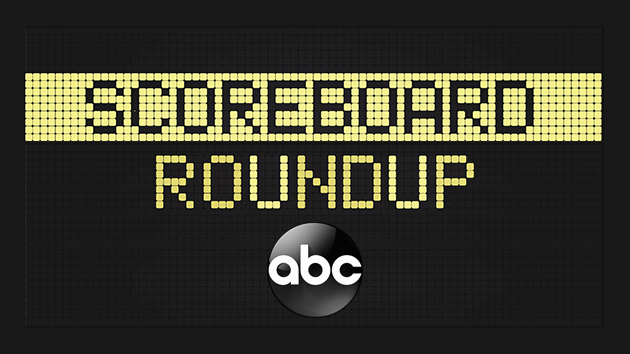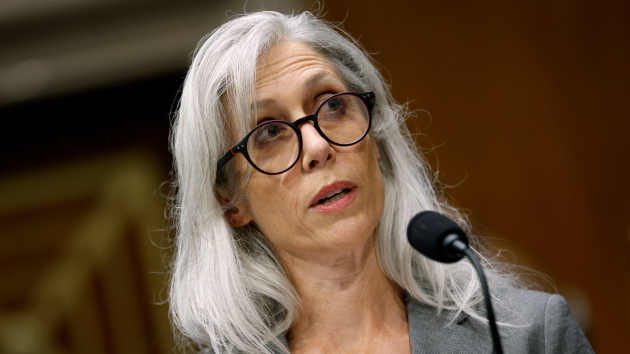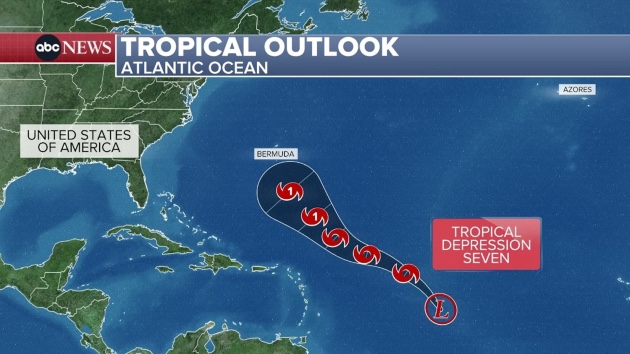Record numbers of people are worse off, a recipe for political discontent: POLL
Written by ABC Audio. All rights reserved. on February 5, 2023
(WASHINGTON) — Four in 10 Americans say they’ve gotten worse off financially since Joe Biden became president, the most in ABC News/Washington Post polls dating back 37 years. Political fallout includes poor performance ratings for Biden and a tight hypothetical Biden/Trump rematch next year.
Given disaffection with both leaders, a rerun of the 2020 presidential election is hardly enticing: Nearly six in 10 Democratic-aligned adults don’t want to see Biden nominated again for the job, and half on the Republican side would rather not see Donald Trump as their party’s nominee.
If those were the choices and the election were today, the poll suggests it could be close: Among all adults, 48 percent support Donald Trump and 44 percent are for Biden; it’s a similar 48-45 percent among registered voters. The differences are within the poll’s margin of sampling error.
The big hit on Biden is the economy: With inflation moderating but still high, 41 percent say they’re not as well off financially as they were when Biden took office, the most in nearly three dozen ABC/Post polls to ask the question since 1986, when Ronald Reagan, who popularized the “better off” phrase, held office. Just 16 percent in this poll, produced for ABC by Langer Research Associates, say they’re better off.
By contrast, nearly two years into Trump’s presidency, far fewer – 13 percent – said they’d gotten worse off; more, 25 percent, were in better shape financially.
Biden’s overall job performance rating, 42-53 percent, approve-disapprove, has been under water, and steadily so, since September 2021. On issues, Biden has just 37 percent approval for handling the economy, 38 percent on the war in Ukraine and 28 percent on the immigration situation at the Mexican border.
Biden’s approval rating after two years in office is well below average compared with the previous 13 presidents. Three have been in about the same boat at this point (Gerald Ford, Jimmy Carter and Ronald Reagan) and one has been lower – Trump, at 37 percent, in polling by ABC/Post and previously Gallup. The pre-Biden average is 56 percent.
EMOTIONS – Underscoring Biden’s challenges, many more Americans have a negative rather than positive emotional response to the prospect of his winning a second term: The public by a broad 62-36 percent would be disappointed or even angry if he were re-elected, rather than enthusiastic or satisfied.
Responses to a hypothetical Trump victory also are negative overall, but less so, 56-43 percent. Part of the reason is that Biden loses slightly more of his base – 26 percent of Democrats and Democratic-leaning independents would be unhappy if he were re-elected, compared with 20 percent of Republicans and GOP leaners who’d feel that way about a Trump win.
Trump occupies somewhat more space at the emotional extremes. Seventeen percent would be enthusiastic about his winning another term; 36 percent would be angry about it. Given a Biden re-election, fewer would be enthusiastic – 7 percent – but also fewer would be angry, 30 percent.
DOCUMENTGATE – For all his woes, Biden outpoints Trump on another measure – their apparent mishandling of classified government documents. Forty-five percent of adults think Trump intentionally did something illegal in his handling of classified documents after he left office as president. Many fewer, 27 percent, say the same about Biden after his vice presidency.
That doesn’t mean Biden is fully off the hook in terms of public attitudes on the issue. Forty-eight percent think he acted wrongly, but not intentionally, in handling classified documents. Just 16 percent think he did nothing wrong. Twenty-nine percent think Trump was unintentionally wrong; 20 percent see no wrongdoing on his part.
BETTER OFF? – Inflation peaked at 9.1 percent in last June, a 40-year high; it’s eased since but remained a still-high 6.5 percent in December. That’s produced widespread economic pain. Nearly two years into Trump’s presidency, 25 percent of Americans said they’d gotten better off since he took office. As noted, fewer, 16 percent, now say the same about life under Biden.
After Trump’s first year, just 13 percent felt worse off financially. That spiked to 35 percent under Biden a year ago, and its level now, 41 percent, is the most measured in 33 ABC/Post polls since September 1986. The previous high was 36 percent among registered voters in September 2011, amid a plethora of economic troubles including 9 percent unemployment.
Economic sentiment is subject to partisan influence; 72 percent of Republicans say they’ve gotten worse off under Biden (more than any other group), while just 12 percent of Democrats say the same. The trouble for Biden is that it’s 39 percent among independents, vs. 11 percent worse off among independents in 2018.
Biden’s approval rating is vastly lower among worse-off Americans than others – unsurprising given the disproportionate number of Republicans in their ranks. Perhaps more telling, given independents’ usual swing-voter role, is this: Among worse-off independents, Biden has a mere 12 percent approval rating and Trump leads him in vote preference by 82-8 percent. Among independents who are in the same shape or better off financially as when he took office, by contrast, Biden’s approval vaults to 67 percent and he leads Trump by 62-29 percent.
Worse-off independents disproportionately lean Republican and better/same independents largely lean Democratic. Nonetheless, because independents are less firmly rooted in partisan predispositions, they can be movable – making their economic sentiment a measure to watch as the 2024 campaign heats up.
NOMINATION NATION – Just 31 percent of Democrats and Democratic-leaning independents say the party should nominate Biden for re-election; 58 percent say it should pick someone else. That’s no better than it was for Biden last September, 35-56 percent.
Two Democratic groups stand out as most opposed to Biden for the nomination – younger adults and Democratic-leaning independents. Among 18- to 39-year-olds, 69 percent would like to see the party choose someone other than Biden, who already is the nation’s oldest president. Anti-Biden sentiment on this measure reaches 72 percent among independents.
Still, even among mainline Democrats, just 39 percent would like to see Biden as the nominee; 50 percent think not. Indeed, the only group in which he’s even numerically above water in support for the nomination is Black Democrats, who divide 47-41 percent on the question. The sample size for that group is small and the difference is within the margin of error.
On the Republican side, overall 44 percent of Republicans and Republican-leaning independents would like to see Trump as the party’s nominee, similar to 47 percent in September; these compare with 67 percent support for him to be the nominee heading into the 2020 contest. Forty-nine percent now would like to see the party pick a different candidate.
The most pro-Trump group among Republicans and GOP leaners is those who call themselves very conservative – 55 percent back him for the nomination, the only group to do so by a statistically significant margin. His other best groups, at 52 percent support, are non-college graduates, rural residents and those with lower household incomes. Most opposed to Trump in the GOP ranks are college graduates (67 percent), people with higher incomes (66 percent), GOP-leaning independents (61 percent) and moderates (56 percent).
APPROVAL and VOTE – Among other results, Biden’s approval rating remains highly polarized; 81 percent of Democrats approve of his work, compared with 6 percent of Republicans; it’s 45 percent among independents. Compare to Trump at this point in his presidency – 78 percent from Republicans, 12 percent among Democrats.
A key difference is independents, who gave Trump a 32 percent approval rating, 13 percentage points lower than Biden’s from independents now.
That said – and while it’s very early in the cycle – independents today support Trump over Biden by 50-40 percent, a slight difference, meaning it’s significant at the 90 percent confidence level rather than the customary 95 percent confidence. There are miles to go before November 2024, but it’s worth keeping in mind that in nine of the last 12 elections, whoever won independents won the presidency.
METHODOLOGY – This ABC News/Washington Post poll was conducted by landline and cellular telephone Jan. 27-Feb. 1, 2023, in English and Spanish, among a random national sample of 1,003 adults. Results have a margin of sampling error of 3.5 percentage points, including the design effect. Partisan divisions are 26-25-40 percent, Democrats-Republicans-independents.
The survey was produced for ABC News by Langer Research Associates, with sampling and data collection by Abt Associates of Rockville, Md. See details on the survey’s methodology here.
Copyright © 2023, ABC Audio. All rights reserved.





